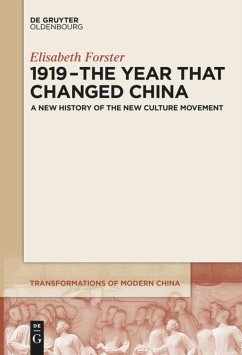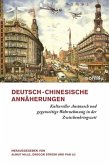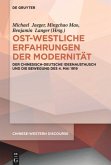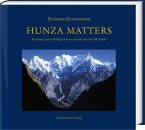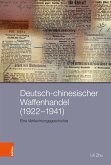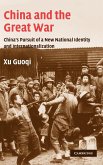The year 1919 changed Chinese culture radically, but in a way that completely took contemporaries by surprise. At the beginning of the year, even well-informed intellectuals did not anticipate that, for instance, baihua (aprecursor of the modern Chinese language), communism, Hu Shi and Chen Duxiu would become important and famous - all of which was very obvious to them at the end of the year.
Elisabeth Forster traces the precise mechanisms behind this transformation on the basis of a rich variety of sources, including newspapers, personal letters, student essays, advertisements, textbooks and diaries. She proposes a new model for cultural change, which puts intellectual marketing at its core. This book retells the story of the New Culture Movement in light of the diversifi ed and decentered picture of Republican China developed in recent scholarship. It is a lively and ironic narrative about cultural change through academic infi ghting, rumors and conspiracy theories, newspaper stories and intellectuals (hell-)bent on selling agendas through powerful buzzwords.
Hinweis: Dieser Artikel kann nur an eine deutsche Lieferadresse ausgeliefert werden.
Elisabeth Forster traces the precise mechanisms behind this transformation on the basis of a rich variety of sources, including newspapers, personal letters, student essays, advertisements, textbooks and diaries. She proposes a new model for cultural change, which puts intellectual marketing at its core. This book retells the story of the New Culture Movement in light of the diversifi ed and decentered picture of Republican China developed in recent scholarship. It is a lively and ironic narrative about cultural change through academic infi ghting, rumors and conspiracy theories, newspaper stories and intellectuals (hell-)bent on selling agendas through powerful buzzwords.
Hinweis: Dieser Artikel kann nur an eine deutsche Lieferadresse ausgeliefert werden.
"Just in the past year, for instance, protesters at National Taiwan University invoked the "New Culture Movement" and the legacies of Hu Shi and Fu Sinian. Forster's excellent book helps the reader to understand why these figures and slogans continue to mobilize political and intellectual support. It will be of interest to historians and literary critics of modern Chinese history, and it deserves to be widely read and discussed."
Albert Wu, Rezension in: H-Soz-Kult, 04.10.2018, www.hsozkult.de/publicationreview/id/rezbuecher-29124
Albert Wu, Rezension in: H-Soz-Kult, 04.10.2018, www.hsozkult.de/publicationreview/id/rezbuecher-29124

